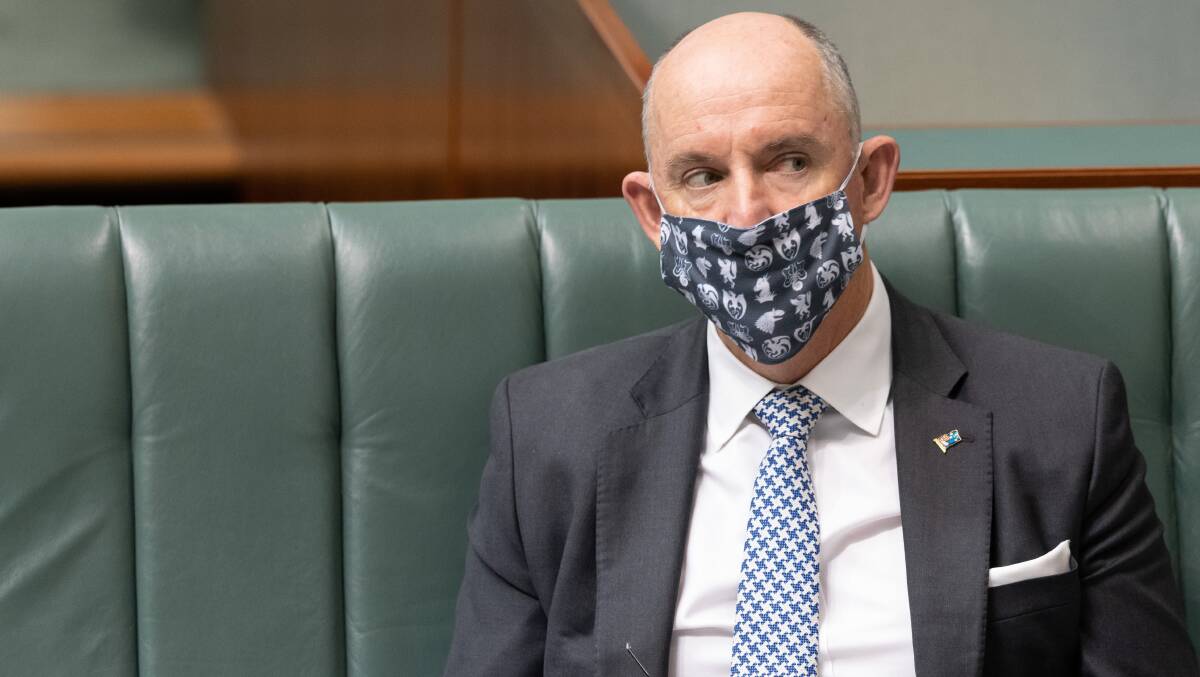
Age verification trials under way for online gambling and alcohol sales could be expanded to include online pornography as the federal government looks to restrict sexually explicit content on the internet from underage children.
Subscribe now for unlimited access.
$0/
(min cost $0)
or signup to continue reading
The Office of the eSafety Commissioner is developing a roadmap to implement age verification for online pornographic sites, expected to be presented to the federal government by the end of the year.
It follows recommendations by a parliamentary committee in 2020 to introduce an online age verification system to curb minors accessing online pornography sites.
But documents released under a freedom of information request by The Canberra Times show the online safety office is considering teaming up with the Digital Transformation Agency on trials using government identification as it explores different methods to stop those under the minimum age from accessing online pornography.
Both agencies denied conducting trials for the moment but said they were working together to support "online safety outcomes".
Neither responded to questions surrounding the planned timelines or the agencies' roles and responsibilities.
The DTA's trusted digital identity framework (TDIF) forms part of a government push to streamline the identity system.
It provides users with access to government services and benefits using a reusable digital identity without needing to complete official forms each time.
The framework would allow third-party private providers to join onto the system, too.
Briefing notes and minutes from the two agencies show senior officials conducted a number of meetings between August and November 2021 to discuss how the DTA's trials were progressing and whether the eSafety office could use the age verification method as part of its solution to government.
One document provides a timeline given in a deep dive presentation by the DTA's then-deputy chief executive Peter Alexander to Employment Minister Stuart Robert and officials from the eSafety office.
Age verification trials would be run in collaboration with the private sector during the third and fourth quarter of 2021 for alcohol and gambling, according to the DTA's timeline.
Between April and June this year, the agency's timeline indicated it was preparing to expand those trials to online pornography.
Facial recognition technology is also being "actively considered" as tool for checking ages online, according to senate estimates notes prepared for eSafety commissioner Julie Inman-Grant in October last year.
Other documents show the agencies had discussed whether age verification methods for online pornography should be trialled at the point of uploading content or while someone is trying to access the content.
In a later meeting in mid-November, the DTA said industry involvement in the trials had been delayed as retailers prepared for the Christmas shopping period.
The Canberra Times asked the DTA whether its timeline for expanding trials to include online pornography remained the same but a spokesperson denied pursuing any age verification trials using its digital identity "at this time".
Mr Robert's office was also asked for clarification on the office's timeline regarding industry delays but declined to comment and referred to the DTA's provided response.
READ MORE:
DTA and eSafety officials discussed the latter's roles in the trials on August 8 ahead of a ministerial meeting between the offices and Mr Robert and Communications Minister Paul Fletcher.
Talking points for the eSafety office in a meeting the week before also revealed it was "very interested" in how the DTA's identify framework would operate and whether it could be used in relation to restricting underage internet users from online pornography.
However, a spokesperson for the eSafety office denied any involvement in the DTA's trials, contrary to what is outlined in the released documents.
When The Canberra Times asked the eSafety office for clarification about its role in the DTA's trial, it dismissed the suggestion and added its roadmap was "essentially a feasibility study" for the government.
"eSafety is not conducting, or involved in, any age verification (AV) trials relating to pornography, and to our knowledge, there are no AV trials being conducted by any federal government agencies," a spokesperson said.
The DTA previously undertook trials during September and October with private providers in relation to online alcohol sales and gambling.
Interest in expanding the government's digital identity tool to online pornography was also noted in a September meeting between eSafety general manager Rebecca Razavi and DTA's digital identity head Jonathon Thorpe.


